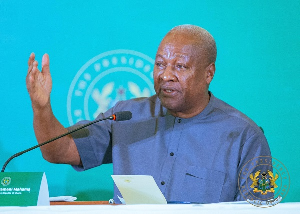They are coming from Zimbabwe, Ghana and even as far as Spain, but they are most likely not what you think.
Money orders are among the items being sent as part of a slew of fraudulent mailings which have drawn the concern of Orangeburg Postmaster Claude Dash.
"I’ve seen many cases of fraudulent mailings through the local post office, and it’s not just Orangeburg," Dash said.
The most outstanding case to date involved a young Orangeburg woman who was starting a business. The woman had already lost more than $3,000 after cashing fraudulent checks received through the mail.
"She came in my office literally crying after she brought in four money orders that looked very authentic; however, our astute window service personnel have trained eyes and brought it to my attention," said Dash, who said having to talk to the helpless woman was a very disheartening experience for him.
"She had indicated to me that she was dealing with that same person out of Ghana, who had scammed her into cashing checks through which she lost a total of $3,060 from my calculations. She was in the process of even doing more monetary transactions," Dash said.
"Fortunately, I was able to at least make her aware that she was being scammed. That prevented her from having further loss of personal money. I don’t want to see that happen to people that are trying to do the right thing," Dash said.
Postal Inspector Tom Gasser of the U.S. Postal Inspection Service, who works out of the Charleston office of the U.S. Postal Service’s Greater South Carolina District, said money orders are actually just a small portion of the "counterfeit financial instruments" being disseminated through the mail and Internet.
"What we see in these sorts of scams is they will send out a number of things. They send out checks, money grams, traveler’s checks. It can be anything that they can get you to cash, or get you to turn into money. They need to use a carrier, and it doesn’t necessarily need to be the postal service. It can be UPS or Fed Ex," Gasser said.
"The hallmark of these sorts of scams is that they’re international in nature. We see a lot of the mailings coming from overseas into the United States. The biggest tool here is educating our customers," he said.
What are the tell-tale signs that you’re being scammed?
"Sudden riches, or scams offering a windfall; foreign business offers; work-at-home prospects. The biggest one right under sudden riches is overpayments. You typically will see this in online auctions and things of that nature," Gasser said.
He said common sense needs to be applied in discerning what is legitimate and what is not.
"There’s no legitimate reason that anybody is going to give you a check and ask you to send cash somewhere else. ...," Gasser said.
Dash said today’s technological advances have made scammers more sophisticated in their scheming.
"With today’s technology, anyone can go on the Internet and locate someone. I can’t speculate that, but what I’m seeing is authentic addresses and people who we deliver to. I got one mailing here from Cope. That’s another office, but a customer said, ‘Hey, look at this,’" Dash said.
"It was the exact same mailing that I got for somebody in Orangeburg. It was one out of Madrid, Spain saying, ‘I lost a relative who lost $7.7 million,’ and they’re soliciting personal information from our citizens. That’s what we really need to be careful of," said Dash, stressing that individuals should never give anyone their bank account numbers, phone numbers or other personal information.
"They are professional thieves and, once they bait you, an unwitting citizen could be out of thousands of dollars. There’s nothing we can do at that point," he said.
"Quite often the initial solicitation is through an Internet advertisement. It could even be a newspaper advertisement, a work-at-home scheme, or a blast of e-mails to any amount of people hoping to get a response. The target victim is anybody that they can get money out of," Gasser said.
"We’re trying to educate people as fast as we can. It’s a constant thing," said Gasser, adding that just being able to cash a check doesn’t make it an authentic one.
"People ask, ‘Why can’t the bank know this is a counterfeit check right away?’ There’s something called the Expedited Funds Availability Act. This law requires that you have access to your money within one to five days. It takes much longer to get through the banking system, so what happens is when it goes through the bank it’s drawn on, they say it’s a bad check," Gasser said.
"They come back to your bank and say they’re not giving them the money, and the bank takes the money back through your account. Just because you can withdraw the money doesn’t mean it was a good check. The bad guys have found a way to exploit our system’s conveniences," he said.
Dash said he has tried to educate all of his carriers on the types of fraudulent mailings that he’s been seeing from customers.
"I would look for anything with a foreign postmark and if the any of the text is saying, ‘A dead relative left a lot of money.’ Those are red flags. The bottom line is if it’s too good to be true, it’s not true. Money doesn’t drop out of the sky like that," he said, including riches promised through so-called international lotteries.
He urged customers to turn in any money order they may have a question about to their local post office for inspection.
"The bottom line is if (you) get one that’s out of nowhere, it’s not free money. Bring it to us, and let us look at it," he said.
Diaspora News of Monday, 27 August 2007
Source: Dionne Gleaton, T&D Staff Writer












